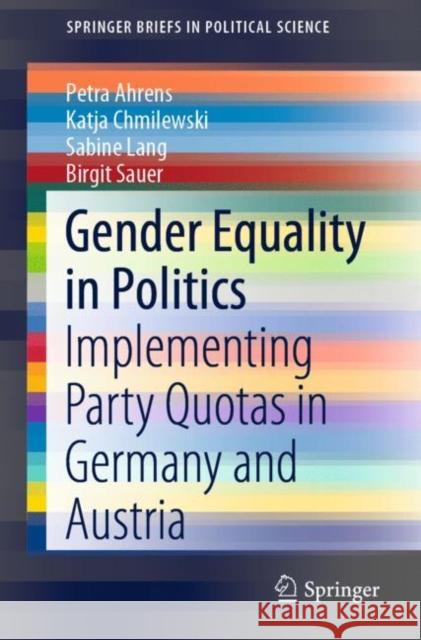Gender Equality in Politics: Implementing Party Quotas in Germany and Austria » książka
topmenu
Gender Equality in Politics: Implementing Party Quotas in Germany and Austria
ISBN-13: 9783030348946 / Angielski / Miękka / 2020 / 136 str.
Kategorie BISAC:
Wydawca:
Springer
Seria wydawnicza:
Język:
Angielski
ISBN-13:
9783030348946
Rok wydania:
2020
Wydanie:
2020
Numer serii:
000413295
Ilość stron:
136
Waga:
0.22 kg
Wymiary:
23.39 x 15.6 x 0.81
Oprawa:
Miękka
Wolumenów:
01
Dodatkowe informacje:
Wydanie ilustrowane











